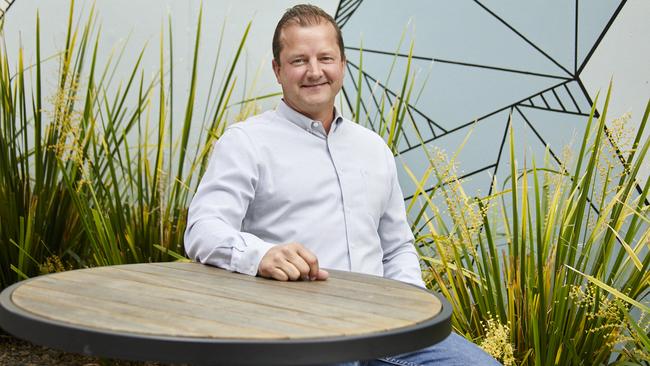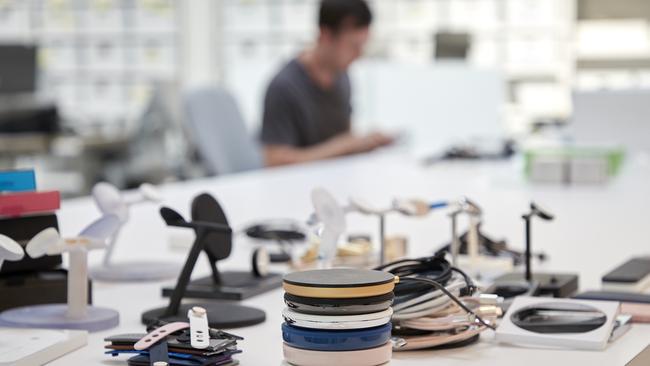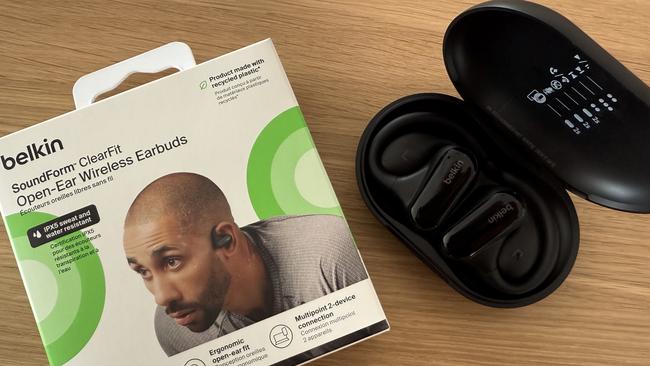Belkin boss Steve Malony urges others to ‘wake up’ to climate crisis
Despite being more expensive than virgin plastic, Belkin is using more recycled materials and is not worried about a short-term profit margin crunch as it urges others to ‘wake up’ to the climate crisis.

Belkin is quietly preferencing recycled over virgin plastic – despite it being more expensive – to make its range of electronics accessories and headphones as part of its efforts to combat climate change.
And despite recycled plastics costing about 7 per cent more than virgin material, chief executive Steve Malony says the company would maintain its current pricing. Why? Because he says: “We’ve got a real climate issue, wake up everybody.”
“Of course, margins of profitability are critical for us,” Mr Malony told The Australian.
“One motivation for us is just doing the right thing for the world and others. We think that as the volumes increase, this is going to become a more mature space. People are going to adopt it more, and prices will go down for us over time.
“As far as the cost that we incur to make that happen, I feel like the impact that we’re having on the world is more important than some of the short term issues that we’re faced with right now.”
Companies across the world are stepping up recycling efforts, with chemical and oil-and-gas players touting plans to build new factories to turn bottles, margarine tubs and other discarded packaging into usable material. This is being achieved by a process called “chemical recycling”, which changes the chemical structure of a product to turn it back into a raw material that can be used for plastics and other products.

Australian enviro-tech start-up Samsara Eco aims to “enzymatically recycle” 1.5 million tonnes of plastic a year by 2030, turning it into fibre that activewear brand Lululemon can make into clothes. About 87 per cent of discarded textiles end up in landfill, heaping pressure on the fashion industry to become more sustainable.
But former US Environmental Protection Agency official Judith Enck – since founded Beyond Plastics – has criticised this chemical recycling, saying it as a distraction from proven waste reduction methods, like using less packaging.
“We had a serious concern about the pseudo solution pushed by the industry called chemical recycling,” Ms Enck told The Wall Street Journal earlier this year.
At Belkin, Mr Malony said the company was focused on recycling and slashing packaging.
“We’ve moved away from using plastic in virtually all our packaging,” he said.
“There’s a couple of things that we’re working on now to try and get away from all of the plastics. In our screen protection product, we use some plant based items today. We need to find a way to eliminate that entirely. We haven’t quite figured that out yet without degrading the quality. I expect those things are going to materialise.”

Taiwan-based Foxconn Technology – Apple’s biggest iPhone supplier – bought Belkin for $US866m in early 2018. It has also been using recycled glass in its smartphone screen protectors.
Other companies have also been changing manufacturing methods to be more sustainable. Home audio titan Sonos is using mechanical fasteners in its new Arc Ultra soundbar rather than adhesives, for example.
“We take inspiration from great companies like them,” Mr Malony said.
“There are others out here that are doing great things too, so that just fuels my further passion about everyone getting behind this. When everyone gets on board with that – we take inspiration from others, we want people to take inspiration from us – collectively we can make a big difference.”




To join the conversation, please log in. Don't have an account? Register
Join the conversation, you are commenting as Logout